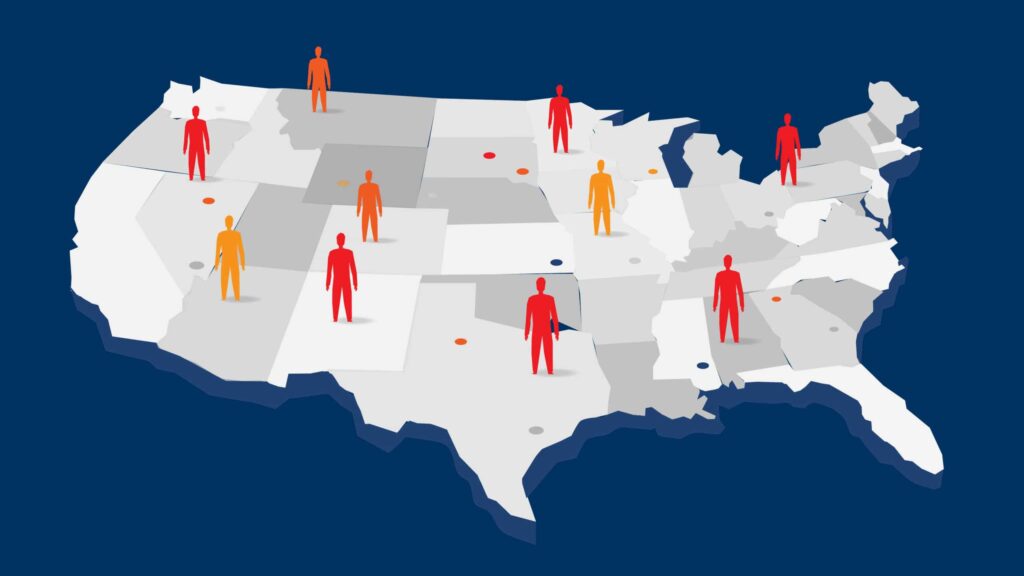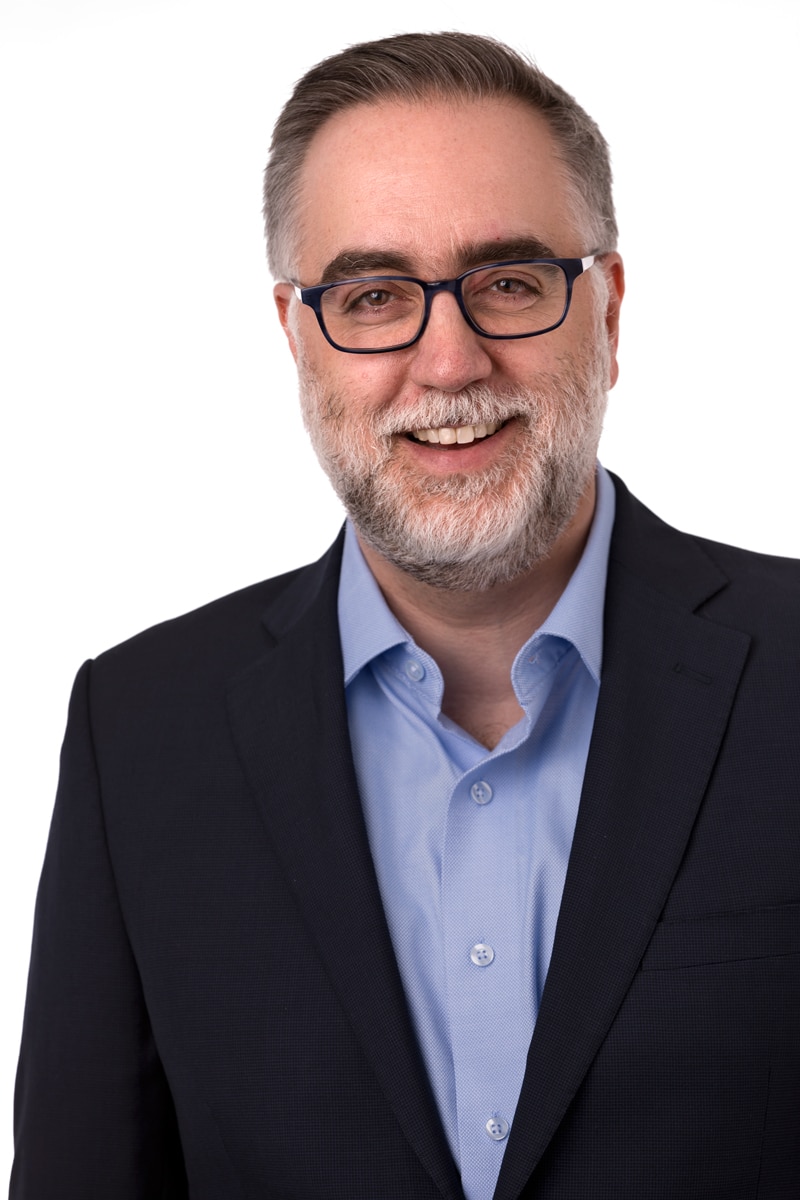
This has been a difficult period for many in our community, including health leaders who chose their profession to help others. Over the past ninety days or so, we’ve seen our hard work, sweat, and investments, overwhelmed by COVID-19 and its devastation, and then by the harsh reality of ongoing police brutality. Sadly, both highlight the health disparities that exist across our country, particularly in Black and minority communities.
We had planned to highlight some of the COVID-19 considerations offered in the first nine volumes of Letters to Leaders this week, but there is no way for us, or our industry, to move forward and think clearly without reminding one another of the essential role that race plays in the work that we do, and in the health outcomes that we work so passionately to achieve.
These are difficult times and yet most of us remain steadfast in mission and committed to population and community health. As leaders, health equity and racial equality continue to be at the center of our work. With the recent murder of George Floyd, we must pause to consider a new way forward. We continue to make only incremental progress, and yet the current situation calls for far more change.
On the issue of policing, let’s be clear, the problem is not those good people, who serve our communities and protect us at great personal risk and for little personal gain. This is not about police officers versus the rest of us. This is about eliminating police brutality, that stems from hate and ignorance, and the need for social justice reform in our society as a whole.
As leaders, we must remind each other, our organizations, and the communities that we serve, that racism is about hate and ignorance, meaning that we must find new ways to change behavior and break the cycle that continues to inflict the same oppression, violence and pain upon our fellow Americans.
We must acknowledge that hate and ignorance are both significant public health issues, resulting in significant health inequities and disparities. To accelerate change, we must identify the elements of American culture that need to be reformed. To start, we must truly value and practice behaviors that emphasize knowledge and empathy, love, and accountability.
We must develop a deeper understanding of our history. In order to build a more just society in this country, leaders must require and promote continuous learning about American history, including the unvarnished version of Black history and the histories of all races. However difficult, we must acknowledge the undeniable truths and common threads that define our past and exist today.
Here are Two Considerations:
- We must develop a deeper understanding of our history. To advance race relations and build a more just society, we must increase our knowledge of American history, in its unvarnished form.
- We must rebuild American culture. Leaders must emphasize empathy, love, and accountability. No one is born a racist. Racism is taught, learned, tolerated, and even embraced in some communities.
We Must Develop a Deeper Understanding of Our History
Throughout history, Black America has expressed the need for, and demanded change. Acts and sacrifices of Black leaders like Frederick Douglass, Harriet Tubman, Rosa Parks, Jimmie Lee Jackson, Martin Luther King Jr, Malcolm X, Nelson Mandela, and Alicia Garza, alongside White leaders, like Clara Barton and John F Kennedy, who enabled progress, while others have enabled the status quo.
Throughout history, sports have been equal parts metaphor, magnifying glass, and example of both the violent ugliness of racism and the possibility of what could be and should be when we conquer evil. One of my favorite moments in American history occurred in 1947, when Pee Wee Reese and Jackie Robinson embraced, after Reese crossed the field in a very public show of support for his teammate. Both men were leaders and both were responsible for changing America forever through their “unconventional” friendship.
We know from so many movements, from Selma to Montgomery to today’s George Floyd protests, that standing together, across races, united, gives us the power to demand and effect change. We know from Black history that we cannot tolerate living in an unjust and unequal society.
Now, and again, leaders of all faiths and races, along with an unprecedented number of people from every walk of life and cultural background, are honoring our historical inheritance and working to re-shape policing and police departments, reform the criminal justice system, and hold accountable those who abuse power. Stimulated by protest, the work of Congress, in connection with the Justice in Policing Bill, is more evidence that we are advancing.
We are so close to the next breakthrough in race relations, and to the next milestone in creating a more just American culture and a more perfect Union. To succeed, we must all be engaged in the work of social justice reform. As leaders, we must acknowledge that neutrality, or even the appearance of being neutral or passive, is tantamount to standing in the way of progress.
Health leaders, in particular, have the opportunity to play a unique role. Hate and ignorance are both incredibly significant public health issues, often resulting in significant inequities and disparities across races. The term health equity, often misunderstood, can no longer be a buzzword. Everyone must understand the term’s origin and significance, in the context of our history.
Building on this understanding, we must work together to design programs, services, and solutions aimed at ensuring equal access to high quality health services for all. We must understand that those with less need more, and those with more will need to advocate for change, and perhaps even sacrifice for the greater good.
We Must Rebuild American Culture
As leaders, we must acknowledge that racism is about ignorance and hate, which also makes it about human behavior and culture. In the context of policing, procedures and training are important, but broader, more impactful change will be brought about with a renewed focus on the cultural norms that we promote as Americans.
To effectively rebuild the culture that
Front Line Focus
Today, we salute our country’s front line leaders, continuing to thank our COVID-19 heroes, while also acknowledging the leaders working on the front lines for social justice, in particular the peaceful protestors across this country, whose efforts are proving to be catalysts for change.
By failing to recognize that racism has burrowed its way into American culture, we have allowed bad legislation and poor systems to prevent us from properly holding people accountable for racist behavior, even for the most atrocious acts. On the other hand, the behaviors, norms, and customs that have supported progress in this country, and will ultimately enable us to defeat racism, are also features of our culture and democracy. Our capacity for empathy and our love for others have been the catalysts for progress and for our greatest nation’s greatest accomplishments.
So, how might we as leaders help shift the momentum and subvert racism? One thing that I’ve thought about quite a bit these days is our company’s mission statement, which as we all know is integral to organizational culture. As suggested earlier, we cannot be neutral or silent if we hope to make change, and I wonder if our mission, in that way, is unclear or somehow inadequate.
We describe both Lucania and Fund Love, through our mission statements, as existing to “help people live longer, healthier lives”, and while the principles of health equity and social justice have always been hallmarks of our work and central to our passion, neither is explicitly mentioned in our mission. When we say that we “help people”, we mean all people, but perhaps that is not enough to simply imply our intention; perhaps it’s not an adequate expression of love or empathy, particularly for those populations that have been and are disadvantaged.
What if our mission evolved to become more intentionally inclusive? What if we existed to “help all people live longer, healthier lives, by fighting for health equity and social justice”. Perhaps, these times require us to be explicit about our intentions and our values. As leaders, I hope that each of us will take the opportunity to review our mission statements and our values, and ask ourselves if anything has been left un-said. Given the gravity of the moment, this may be the time to be clear that health equity is a priority and that we value empathy and love, and knowledge and accountability.
As leaders, we know that our mission statement provides the context for our strategy, our policies, and our day-to- day decision-making. Our mission statement informs our priorities and the way in which we allocate resources to support these priorities. Our mission and values also compel us to ask key questions about our work.
For health leaders, our mission could influence the answer to questions like, are we spending enough on underserved communities; do our programs adequately address health disparities; does everyone in the community have access to our services; are we able to achieve the desired outcomes for all? Clarifying our mission statement may allow us to move from short-term tactical solutions to long-term strategies to address health equity and social justice, positioning us to better step in to the challenges we face.
Changing culture will not be easy, but the alternative is certainly not acceptable. The great poet James Baldwin said it well:
“Not everything that is faced can be changed, but nothing can be changed until it is faced”.
We also celebrate the lives of the Black people who we lost as the result of police brutality. In addition to George Floyd, we are reminded of Freddie Gray and Sam Dubose, of Breonna Taylor, Philando Castile, Terence Crutcher, Alton Sterling, Jamar Clark, Jeremy McDole, William Chapman II, Walter Scott, Eric Harris, and of Tamir Rice and Akai Gurley, of Michael Brown, Eric Gardner, Toni McDade, Aiyana Mo’Nay Stanley-Jones, Pamela Turner, Jordan Edwards, Rekia Boyd, Tanesha Anderson, Laquan McDonald, and of Ricky Ball, Sandra Bland, Michelle Cusseaux, Keith Lemont Scott, Korryn Gaines, Anthony Lamar Smith, Sylville Smith, Atatiana Jefferson, John Crawford, Shantel Davis, Trayvon Martin, and countless other Black people, all of whom were victims of police brutality, and none of whom died in vain.
About Letters to Leaders
Letters to Leaders is a series written by team members at Fund Love and Lucania Partners. Each week we do our best to offer some perspective on the challenges we all face, as leaders. We also pause to reflect and thank our industry’s frontline leaders and staff, for showing us the way during this unprecedented period. We share our ideas and appreciations from a place of good fortune, gratitude, and humility.

